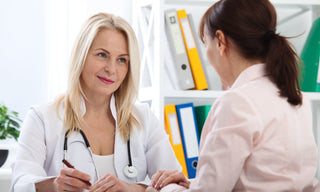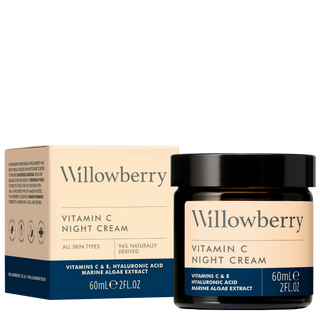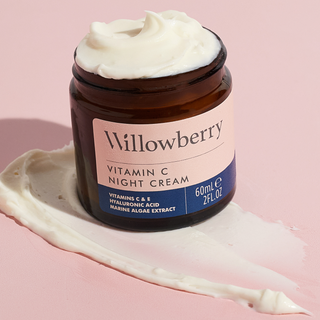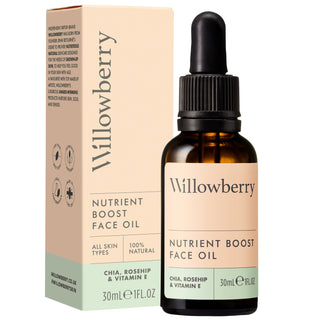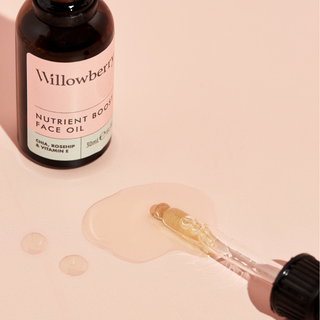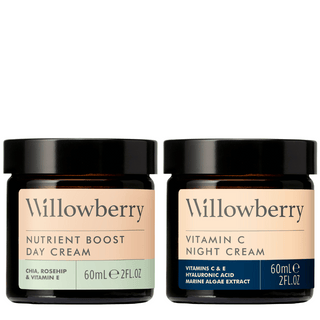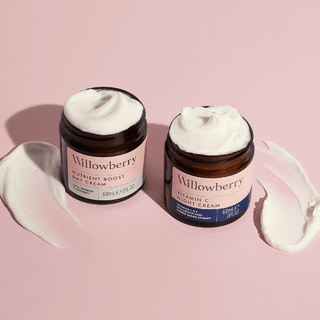The symptoms of perimenopause and menopause are so numerous and can be so different from woman to woman that there is no one-size-fits-all guide. Although the conversation around perimenopause and menopause is certainly opening up, it’s not always easy to know where to go for help if you need it, so we’ve put together a helpful guide for you.
See your doctor
The first step is to make an appointment with your GP. According to one GP we spoke to, generally speaking, a female GP is your best first port of call when looking for peri/menopause advice, more so than going to see a gynaecologist.
1. Call your GP.
2. Ask if they have someone who specialises in menopause.
3. Don’t feel bad for asking.
Women can often feel like they are being too demanding by asking for specialist help. Hopefully seeing it stated like that in black and white makes you realise that’s just absurd. And ultimately futile, as not getting the right help ASAP can lead to the symptoms becoming worse, requiring more care than they did in the first place. So if it helps, think of it this way: you are doing everyone a favour by seeking out expert help from the get-go. And the more women that do that, the easier we make it for the ones who come after us.
Aside from your GP, there are other options and resources for additional help:
Menopause Clinics
If you find that you don’t get what you need from your GP, you can ask to be referred to a specialist menopause clinic. To find out for yourself where your nearest clinic is, the British Menopause Society (BMS) website has a facility to search for your nearest BMS registered menopause specialist.
Online Resources
The BMS is primarily for healthcare professionals, but its patient arm Women’s Health Concern offers an independent service to ‘advise, reassure and educate’. Both have lots of information on their sites. The Women’s Health Concern charity also offers a confidential email advice service where your query will be answered by specialist nurses (they ask for a minimum donation of £10).
Dr Louise Newson is a leading voice in raising awareness of the menopause and collaborated with Davina McCall on her recent Channel 4 documentary: ‘Sex, Myths and the Menopause’. Dr Newson’s site balance (formerly known as My Menopause Doctor) offers a wealth of advice, medical information and comprehensive factsheets. You can also find out more about the balance app, Dr Newson’s free peri/menopause support app which offers personalised information and expert advice.
Independent website Menopause Matters is a source of up-to-date information concerning menopause symptoms and treatment options for peri-, menopausal and post-menopausal women. It has a handy sidebar of issues to quick click through for advice and a ‘Decision Tree’ interactive flow chart which explains how treatment decisions are made. They also publish a Menopause Matters magazine.
Rock My Menopause is the public facing campaign of the Primary Care Women’s Health Forum and aims to stamp out the taboo and prejudice around menopause. Its focus is threefold: to empower women to be able to talk about their peri/menopause; to aid friends and family in how to support a loved one going through it; and advice for colleagues on what they can do to help in the workplace.
You can download a symptoms tracker which becomes a useful document to take with you when you go and see your GP. There’s also a laugh to be had: their campaign to share your #PelvicFloorFace aims to raise awareness and provides a hit of light relief. (You’re doing it now, right…?!).
Lifestyle and Nutrition
Both lifestyle and nutrition are important considerations in relation to peri/menopause. Joanne Shepherd (MSc, BANT) of Nutrition for Women explains, “A nutritional therapist can help support lifestyle and nutrition, with some having the ability to test and analyse areas such as hormonal levels or bone health and making lifestyle, dietary or supplement suggestions to support the results. Significant differences may also be seen in a person’s skin when nourished optimally from the inside out.
“Look for a registered nutritional therapist through the British Association for Nutrition & Lifestyle Medicine (BANT) to offer personalised nutrition which is specific to your needs and goals. This is a time to support your body to help allow a smooth transition through these years.”
We are big fans of menopause nutritionist Emma Bardwell, who also has lots of advice on her website.
Books on perimenopause and menopause
We recently wrote a blog post summarising various books on perimenopause and menopause – check it out here.
Willowberry is nutritious natural skincare for grown-ups, for your best skin.
A favourite with top make-up artists, Willowberry's luxurious award-winning products protect skin’s natural barrier function, to nourish and revive grown-up skin without telling women to be 'anti-ageing'.
As seen in Vogue, Independent, The Telegraph, This Morning and more.

